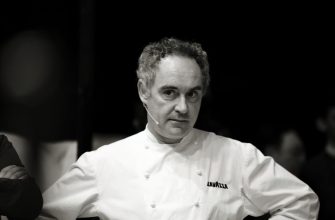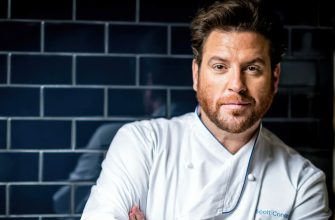The New Nordic Revolution
The New Nordic Cuisine movement has swept across the culinary world, with Chef Magnus Nilsson at its forefront. This innovative approach to cooking emphasizes the use of local, seasonal ingredients and a deep respect for nature. By embracing traditional Nordic techniques and flavors, Nilsson has crafted a unique culinary identity that has earned him international acclaim.
A Culinary Journey to Fäviken
Fäviken, the remote Swedish restaurant where Nilsson served as head chef from 2008 to 2019, played a crucial role in his career. The isolated location challenged Nilsson to think creatively and sustainably, sourcing ingredients directly from the surrounding landscape. This experience fostered a profound appreciation for the environment and its bounty, which became a cornerstone of his culinary philosophy.
Magnus Nilsson’s Innovative Techniques
Chef Nilsson’s ingenuity extends beyond his use of local ingredients. He is also known for his innovative techniques, such as fermenting, pickling, and smoking, which enable him to preserve and enhance flavors throughout the year. These methods, rooted in Nordic tradition, allow him to create an authentic and immersive dining experience that connects diners to the region’s rich culinary heritage.
Sharing Knowledge and Inspiring Future Chefs
In addition to his work in the kitchen, Magnus Nilsson has dedicated himself to sharing his passion for New Nordic Cuisine. He has authored multiple cookbooks, including the highly-regarded “The Nordic Cookbook” and “Fäviken: 4015 Days, Beginning to End.” By documenting his experiences and recipes, Nilsson hopes to inspire future generations of chefs to embrace the principles of sustainability and respect for nature that define the New Nordic movement.
A Glimpse into Magnus Nilsson’s Background
The story of Magnus Nilsson’s culinary journey began in his childhood, where his love for food was ignited by watching his grandmother cook traditional Swedish dishes. After studying at a local culinary school, Nilsson worked in several high-profile restaurants, including the three Michelin-starred L’Astrance in Paris. These experiences helped shape his skills and understanding of fine dining.
Embracing Hyperlocal Ingredients
One of the hallmarks of Magnus Nilsson’s New Nordic Cuisine is his unwavering commitment to using hyperlocal ingredients. This approach means that his dishes feature ingredients grown or foraged within a specific geographic radius of the restaurant. By sourcing ingredients close to home, Nilsson is able to showcase the distinctive flavors of the region while also reducing the environmental impact of transportation.
Sustainability and Responsibility
Sustainability is a central tenet of Magnus Nilsson’s culinary philosophy. He believes that chefs have a responsibility to minimize waste and promote ethical practices, both in the kitchen and in the wider food industry. By focusing on local, seasonal ingredients, and using every part of an animal or plant, Nilsson demonstrates how thoughtful cooking can contribute to a more sustainable future.
The Legacy of Fäviken and Beyond
Following the closure of Fäviken in 2019, Magnus Nilsson embarked on new projects and continued to share his passion for New Nordic Cuisine. In addition to his writing and teaching, he has launched a podcast, “The Magnus Nilsson Podcast,” which explores various aspects of food culture and sustainability. Even as he steps away from the restaurant kitchen, Nilsson’s influence on the culinary world remains strong and enduring.
In summary, Chef Magnus Nilsson’s commitment to New Nordic Cuisine has transformed the way we think about food and sustainability. His focus on hyperlocal ingredients, innovative techniques, and ethical practices has inspired countless chefs and food enthusiasts, leaving a lasting impact on the global culinary scene.


